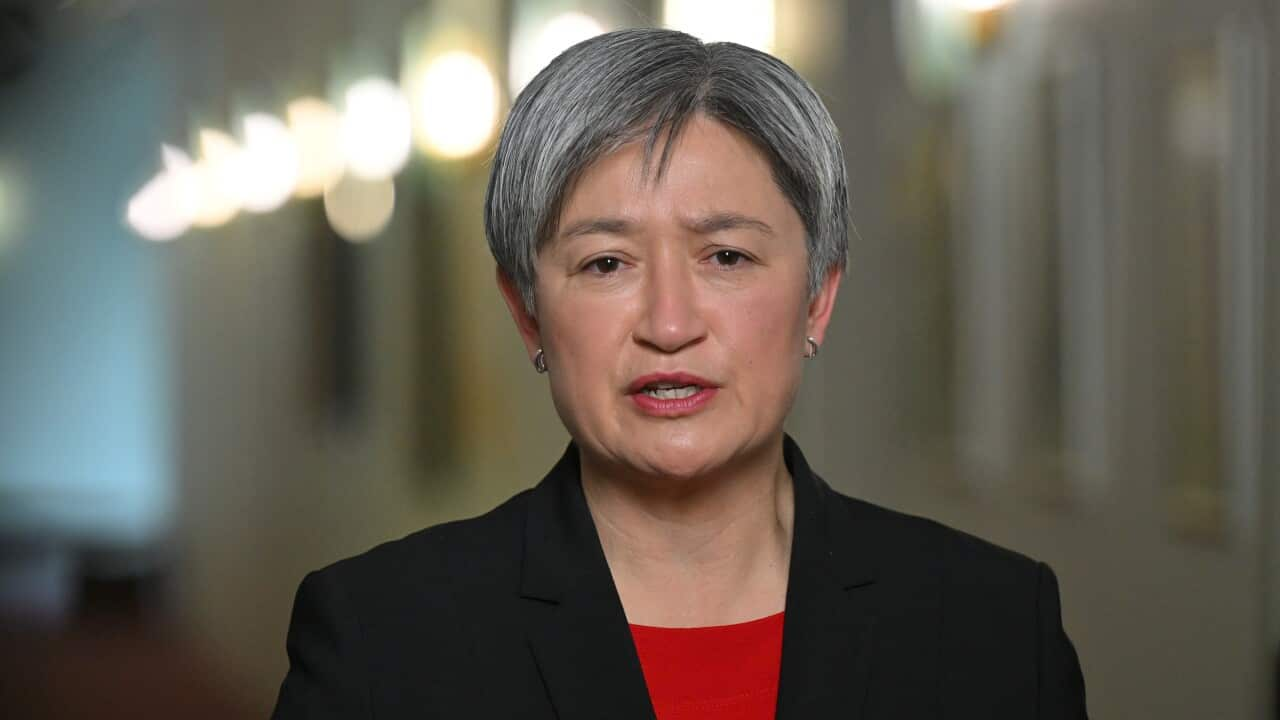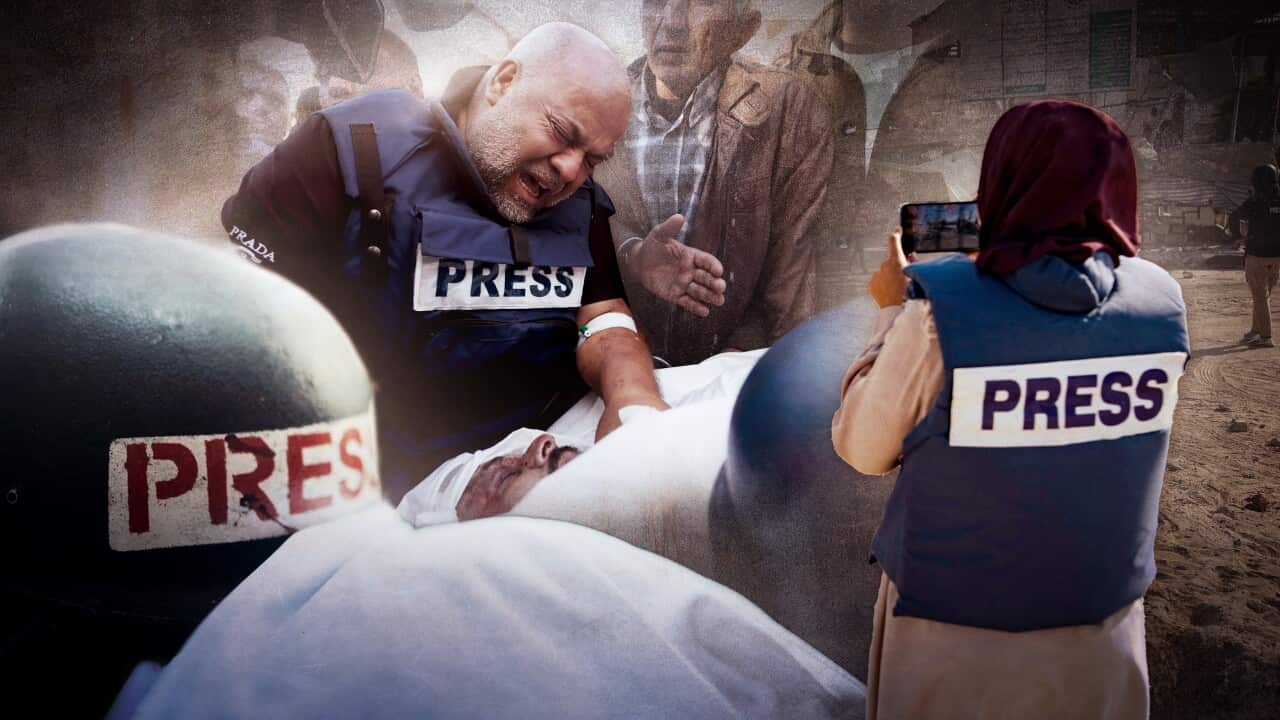Aid workers say the risk of famine and death from preventable conditions in Gaza is "getting worse by the day", as critical aid shortages lead to malnutrition and death among a Palestinian population experiencing some of its "darkest stages".
The Israeli military has come under strong criticism for , where it has increased rocket fire since 6 October this year, trapping thousands of civilians who fear travelling to the enclave's crowded south.
The military says the goal of the assault is to destroy the operational capabilities it says Hamas is trying to rebuild in the north.
As an already deadly situation deteriorates further, from treatable wounds and being denied medical evacuation into Egypt, UNICEF spokesperson James Elder said in Geneva on 21 October.
He shared the story of Mazyona, a twelve-year-old girl in Gaza.
"When two rockets struck her home, she was thought dead. Mazyona had no pulse. Both her siblings, Hala, 13 and Mohamed, 10, were killed," Elder said.
Elder said Mazyona suffered major injuries to her facial structure, her face was nearly torn off, and she urgently requires a medevac for specialised care and bone surgery.
"Mazyona also still has shrapnel in her neck. She is of course in immense pain, and her condition is worsening. The platinum surgically used to rebuild her face is coming out, and doctors have stated that she needs surgeries outside of Gaza to save her life", Elder said.
Elder said Israeli authorities had denied Mazyona medical evacuation four times.
UNICEF estimates 2,500 children in Gaza need urgent medical care. It said they are being evacuated at a rate of less than one per day.
Israel's Coordinator of Government Activities in the Territories (COGAT) — which controls access to Gaza — denied withholding medical evacuations for Gazan children.
In a statement to SBS News, COGAT said it is "proactively facilitating the departure of patients and wounded individuals with complex injuries to receive medical treatment outside the Gaza Strip, including in Egypt, pending the host country's approval and completion of security checks".
COGAT said it had evacuated 12 groups of patients and escorts so far through Israel's sovereign territory and "will continue working to facilitate the provision of a humanitarian response in all its aspects for Gaza Strip residents, with a particular focus on medical assistance".
According to the COGAT statement, approximately 4,013 patients and 1,879 escorts have left Gaza so far through various crossings.
This year, from 1 January to 7 May, an average of 296 children were medically evacuated each month. But since 7 May, when closed due to Israel’s ground offensive there, the number of children medically evacuated has dropped to just 22 per month or 127 children in total, which is around a 90 per cent reduction, UNICEF says.
Many of these children are suffering from head trauma, amputations, burns, cancer, and severe malnutrition.
Elder told SBS News conditions in north Gaza are "getting worse by the day" because so little food, water and medical supplies are entering the region, and more than 37 schools and shelters have been struck since the beginning of October.
He said Israeli forces have created a "virtual blockade" around Jabalia refugee camp, where thousands are sheltering, and the number of trucks going in is an "absolute trickle" compared to what's needed, meaning the risk of famine is "escalating rapidly".

Jasser, a 7-year-old from Gaza, looks out through a hole in a tent. Credit: Eyad El Baba/UNICEF
"Here we are again a year later when people's psychological and physical capacity has been devastated when hundreds of thousands of homes have been destroyed, when most family members have lost a mum or a daughter or a brother."
Elder said he has been to Gaza four times with UNICEF in the past year and has seen "far too many children writhing in pain" as hospitals can't get basic supplies in.
He recounted: "These gentle whimpers of cries of children are lying in hospital beds with wounds that no parent can imagine their child seeing. And with hospitals that simply don't have the basic burn creams, for example, to treat them".
But he said families are trapped in the north because they know that being displaced again and going south "pushes them from one place of suffering to another".
"Now we are at some of the darkest stages for those families in the north."
On Friday, health officials reported that Israeli forces had one of the few medical facilities still functioning in the area.
The Gaza health ministry said two children had died in the hospital's intensive care unit after Israeli fire hit oxygen equipment and the hospital's generators failed. The Israeli military said it was unaware of strikes in the area.
Gaza's aid crisis
The UN's chief has described northern Gaza's humanitarian situation as "untenable" and called for Israel to allow crucial aid into the besieged enclave.
"The devastation & deprivation resulting from Israel's military operations in North Gaza are making the conditions of life untenable for the Palestinian population there," António Guterres wrote on X on Monday.
Israel is under international pressure to allow an increased amount of aid into Gaza.
Last week US secretary of state Antony Blinken said Israel needed to do more to ensure that adequate humanitarian supplies reached people living in dire conditions, singling out .
Oxfam's Lisa Scharinger spoke to SBS News from Gaza.
She said the food shortages are much worse than they were earlier in the year, and people in southern Gaza have no meat and very little fresh vegetables, which are extortionately expensive.
"When I was here in March and April, it was very heavy in terms of bombing and destruction and in terms of movement, there were many restrictions, but at least there were commercial trucks entering and people could buy food even if it was overpriced," she said.
"(Earlier in the year) it was Ramadan, there was meat, there were even fruits, there were fresh vegetables. Right now, there is really hardly anything fresh".
Scharinger said continuous bombardment makes it to drive trucks in to affected areas.
"Even the most seasoned aid workers who have been in this sector for many, many years have never seen something like this. It's truly horrific.
"It looks as if an earthquake had struck but it's not an earthquake — It's all manmade destruction".
The UN’s Office for the Coordination of Humanitarian Affairs (OCHA) reports that during the first 20 days of October, only four out of 66 planned humanitarian missions through the Israeli checkpoint from southern to northern Gaza were facilitated by Israeli authorities.
OCHA staff in Gaza City say almost no humanitarian aid is getting into Jabalia refugee camp, and telecommunications are severely disrupted amid ongoing airstrikes, shelling, and fighting across North Gaza.
The fuel needed to keep water facilities running has been depleted, OCHA says, and people are risking their lives to find drinking water and consuming water from unsafe sources.
Since Israel's assault on Gaza, more than 42,800 people have been killed in the enclave, according to the Gaza health ministry.
That was triggered in the wake of last year's October 7 assault on southern Israel carried out by militants led by Hamas — Gaza's militant rulers.
Militants killed 1,200 people in Israel, with more than 250 taken hostage.












